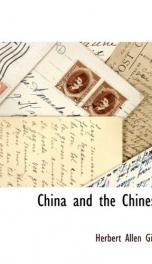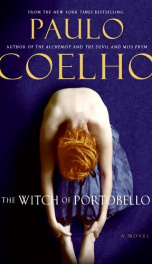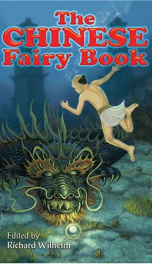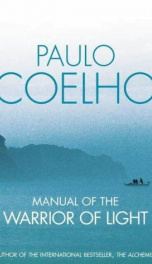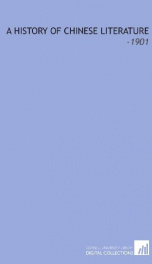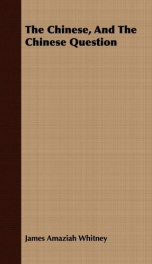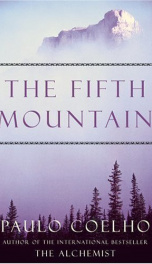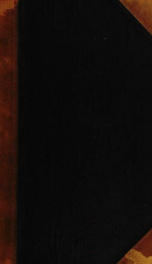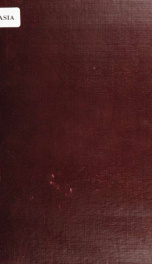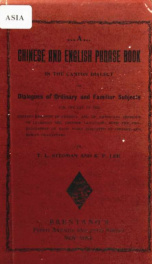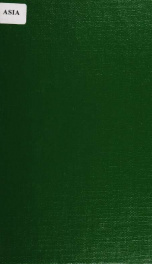Confucius

Mencius (Chinese: 孟子; Zhuyin/Bopomofo: ㄇㄥˋ ㄗ˙; pinyin: Mèng Zǐ; Wade-Giles: Meng Tzu), most accepted dates: 372 – 289 BCE; other possible dates: 385 – 303/302 BCE) was a Chinese philosopher who was arguably the most famous Confucian after Confucius himself. Mencius, also known by his birth name Meng Ke or Ko, was born in the State of Zou (simp.:邹国; trad.: 鄒國; pinyin: zōu guó; Wade-Giles: tsou1 kuo2), now forming the territory of the county-level city of Zoucheng (邹城; originally Zouxian), Shandong province, only thirty kilometres (eighteen miles) south of Qufu, Confucius' birthplace. He was an itinerant Chinese philosopher and sage, and one of the principal interpreters of Confucianism. Supposedly, he was a pupil of Confucius' grandson, Zisi. Like Confucius, according to legend, he travelled China for forty years to offer advice to rulers for reform.[5] He served as an official during the Warring States Period (403–221 BCE) in the State of Qi (齊; pinyin: qí; 1046 BC to 221 BC) from 319 to 312 BCE. He expressed his filial devotion when he took an absence of three years from his official duties for Qi to mourn his mother's death. Disappointed at his failure to effect changes in his contemporary world, he retired from public life. The traditional Chinese four-character idiom 孟母三遷 (pinyin: mèng mǔ sān qiān; Zhuyin/Bopomofo: ㄇㄥˋ ㄇㄨˇ ㄙㄢ ㄑ一ㄢ; Hangeul/Korean: 맹모삼천; Kana: もうぼさんせん; Romaji: mou bo san sen; literal translation: Mencius' mother, three moves) refers to the legend that Mencius' mother moved their house three times—from beside a cemetery to beside a marketplace (other versions of the story said the move was to a house beside an abattoir), to finally beside a school—before finding a location that she felt was suitable for his upbringing. As an expression, the idiom refers to the importance of a proper environment for the proper upbringing of children. Mencius ( 372 BC-289BC) was a great thinker during the Warring States period. According to historical records, the father of Mencius passed away when he was very young. In order to raise him appropriately, his mother Zhang(仉)moved their home three times. Originally they lived nearby a cemetery, where she found her son imitating the acts of mourning in the funeral processions or burial services for fun. She found it was not good for her son’s upbringing, and she moved the home to downtown nearby market. There, however, she found her son imitating the acts of killing pigs or cries of the merchants. It was also not a proper environment for her son to grow up. So she moved again. In the end she found a place nearby school, where young Mencius began to be influenced by the elegant people. Inspired by what he saw and heard, Mencius started to be interested into study. Observing this his mother finally decided to settle down there. This is the famous story of “ Three Moves by the mother of Mencius”. Mencius' interpretation of Confucianism has generally been considered the orthodox version by subsequent Chinese philosophers, especially the Neo-Confucians of the Song dynasty. Mencius' disciples included a large number of feudal lords, and he was actually more influential than Confucius had been.[6] The Mencius (also spelled Mengzi or Meng-tzu), a book of his conversations with kings of the time, is one of the Four Books that Zhu Xi grouped as the core of orthodox Neo-Confucian thought. In contrast to the sayings of Confucius which are short and self-contained, the Mencius consists of long dialogues, including arguments, with extensive prose. While Confucius himself did not explicitly focus on the subject of human nature, Mencius asserted the innate goodness of the individual, believing that it was society's influence – its lack of a positive cultivating influence – that caused bad moral character. "He who exerts his mind to the utmost knows his nature"[7] and "the way of learning is none other than finding the lost mind".[8] His translator James Legge finds a close similarity between Mencius' views on human nature and those in Bishop Butler's Sermons on Human Nature. To show innate goodness, Mencius used the example of a child falling down a well. Witnesses of this event immediately feel The feeling of commiseration is the beginning of humanity; the feeling of shame and dislike is the beginning of righteousness; the feeling of deference and compliance is the beginning of propriety; and the feeling of right and wrong is the beginning of wisdom. Men have these Four Beginnings just as they have their four limbs. Having these Four Beginnings, but saying that they cannot develop them is to destroy themselves.[9] Human nature is innately good because moral rightness cannot be instructed down to the last detail. This is why merely external controls always fail in improving society. True improvement results from educational cultivation in favorable environments. Likewise, bad environments tend to corrupt the human will. This, however, is not proof of innate evil because a clear thinking person would avoid causing harm to others. The object of education is the cultivation of benevolence. According to Mencius, education must awaken the innate abilities of the human mind. He denounced memorization and advocated active interrogation of the text, saying, "One who believes all of a book would be better off without books." One should check for internal consistency by comparing sections and debate the probability of factual accounts by comparing them with experience. Mencius also believed in the power of Destiny in shaping the roles of human beings in society. What is destined cannot be contrived by the human intellect or foreseen. Destiny is shown when a path arises that is both unforeseen and constructive. Destiny should not be confused with Fate. Mencius denied that Heaven would protect a person regardless of his actions, saying, "One who understands Destiny will not stand beneath a tottering wall". The proper path is one which is natural and unforced. This path must also be maintained because, "Unused pathways are covered with weeds". One who follows Destiny will live a long and successful life. One who rebels against Destiny will die before his time. Mencius emphasized the significance of the common citizens in the state. While Confucianism generally regards rulers highly, he argued that it is acceptable for the subjects to overthrow or even kill a ruler who ignores the people's needs and rules harshly. This is because a ruler who does not rule justly is no longer a true ruler. Speaking of the overthrow of the wicked King Zhou of Shang, Mencius said, "I have merely heard of killing a villain Zhou, but I have not heard of murdering [him as] the ruler."[10]. This saying should not be taken as an instigation to violence against authorities but as an application of Confucian philosophy to society. Confucianism requires a clarification of what may be reasonably expected in any given relationship. All relationships should be beneficial, but each has its own principle or inner logic. A Ruler must justify his position by acting benevolently before he can expect reciprocation from the people. In this view, a King is like a steward. Although Confucius admired Kings of great accomplishment, Mencius is clarifying the proper hierarchy of human society. Although a King has presumably higher status than a commoner, he is actually subordinate to the masses of people and the resources of society. Otherwise, there would be an implied disregard of the potential of human society heading into the future. One is significant only for what one gives, not for what one takes. His alleged years make him contemporary with Xun Zi, Zhuangzi, Gaozi, and Plato. Xun Zi was a Confucian who believed that human nature is originally evil, and the purpose of moral cultivation is to develop our nature into goodness. Obviously, Mencius was at odds with him. His views were declared as unorthodox by Zhu Xi, and Mencius as orthodox. Mencius' argument that unjust rulers may be overthrown is reminiscent of Socrates' argument in Book I of Plato's Republic.
do you like this author?
What readers are saying
What do you think? Write your own comment on this book!
write a commentWhat readers are saying
What do you think? Write your own comment on this author!
write a commentBook list

The conduct of life; or, The universal order of Confucius. A translation of one of the four Confucius books, hitherto known as The doctrine of the mean
Series:
Unknown
Year:
Unknown
Raiting:
5/5
26
Show more
add to favoritesadd In favorites

The classics of Confucius : Book of history (Shu King)
Series:
Unknown
Year:
Unknown
Raiting:
3.5/5
26
Show more
add to favoritesadd In favorites
Book list

The conduct of life; or, The universal order of Confucius. A translation of one of the four Confucius books, hitherto known as The doctrine of the mean
Series:
Unknown
Year:
Unknown
Raiting:
5/5
26
Show more
add to favoritesadd In favorites

The classics of Confucius : Book of history (Shu King)
Series:
Unknown
Year:
Unknown
Raiting:
3.5/5
26
Show more
add to favoritesadd In favorites
![The four books: The great learning, The doctrine of the mear [i.e. mean] Confucian Analects [and] The works of Mencius_cover](/img/standard/standard_book.png)
The four books: The great learning, The doctrine of the mear [i.e. mean] Confucian Analects [and] The works of Mencius
Series:
Unknown
Year:
Unknown
Raiting:
3.5/5
26
Show more
add to favoritesadd In favorites

Ancient China. The Shoo king, or the historical classic; being the most ancient authentic record of the annals of the Chinese Empire
Series:
Unknown
Year:
Unknown
Raiting:
4.5/5
26
Show more
add to favoritesadd In favorites

The Shu king; or, The Chinese historical classic, being an authentic record of the religion, philosophy, customs and government of the Chinese from the earliest times. Translated from the ancient text, with a commentary
Series:
Unknown
Year:
Unknown
Raiting:
2.5/5
26
Show more
add to favoritesadd In favorites
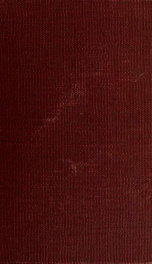
The sayings of Confucius : a new translation of the greater part of the Confucian analects
Series:
Unknown
Year:
Unknown
Raiting:
4/5
Show more
add to favoritesadd In favorites

Sacred writings;
Series:
Unknown
Year:
Unknown
Raiting:
2.5/5
Book digitized by Google and uploaded to the Internet Archive by user tpb. v. 1. Confucian, Hebrew, Christian (part 1).--v. 2. Christian (part 2) Buddhist, Hindu, Mohammedan
Show more
add to favoritesadd In favorites

Sacred writings;
Series:
Unknown
Year:
Unknown
Raiting:
3/5
Book digitized by Google and uploaded to the Internet Archive by user tpb. v. 1. Confucian, Hebrew, Christian (part 1).--v. 2. Christian (part 2) Buddhist, Hindu, Mohammedan
Show more
add to favoritesadd In favorites

Sacred writings;
Series:
Unknown
Year:
Unknown
Raiting:
4.5/5
Book digitized by Google and uploaded to the Internet Archive by user tpb. v. 1. Confucian, Hebrew, Christian (part 1).--v. 2. Christian (part 2) Buddhist, Hindu, Mohammedan
Show more
add to favoritesadd In favorites

Sacred writings;
Series:
Unknown
Year:
Unknown
Raiting:
4.5/5
Book digitized by Google from the library of the University of Michigan and uploaded to the Internet Archive by user tpb. v. 1. Confucian, Hebrew, Christian (part 1).--v. 2. Christian (part 2) Buddhist, Hindu, Mohammedan
Show more
add to favoritesadd In favorites
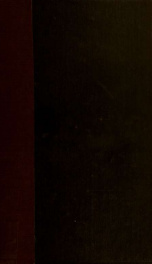
The Sacred books of China: The texts of Confucianism 3
Series:
Unknown
Year:
Unknown
Raiting:
3.5/5
v.3: Part I. The Shû king. The religious portions of the Shih king. The Hsiâo king.-- v.16: Part II. The Yî king.-- v.27-28: Part III-IV. The Lî Kî
Show more
add to favoritesadd In favorites
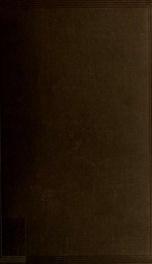
The Sacred books of China: The texts of Confucianism 16
Series:
Unknown
Year:
Unknown
Raiting:
4.5/5
v.3: Part I. The Shû king. The religious portions of the Shih king. The Hsiâo king.-- v.16: Part II. The Yî king.-- v.27-28: Part III-IV. The Lî Kî
Show more
add to favoritesadd In favorites

The Sacred books of China: The texts of Confucianism pt.3
Series:
Unknown
Year:
Unknown
Raiting:
4.5/5
v.3: Part I. The Shû king. The religious portions of the Shih king. The Hsiâo king.-- v.16: Part II. The Yî king.-- v.27-28: Part III-IV. The Lî Kî
Show more
add to favoritesadd In favorites

The Sacred books of China: The texts of Confucianism pt.4
Series:
Unknown
Year:
Unknown
Raiting:
3/5
v.3: Part I. The Shû king. The religious portions of the Shih king. The Hsiâo king.-- v.16: Part II. The Yî king.-- v.27-28: Part III-IV. The Lî Kî
Show more
add to favoritesadd In favorites

The Chinese classics
Series:
Unknown
Year:
Unknown
Raiting:
3/5
Book digitized by Google from the library of Harvard University and uploaded to the Internet Archive by user tpb. Vols. IV-V have imprint: Hongkong, Lane, Crawford & co., London [etc.] I. Confucian analects, the Great learning, and the doctrine of the mean.--II. The works of Mencius.--III. The Shoo king, or the Book of historical documents; pt. I. The first parts of the Shoo king, or the Books of T'ang; the Books of Yu; the Books of Hea; the Books of Shang; and the Prolegomena. pt. II. The fifth part of the Shoo king, or the Books of Chow; and the indexes.--IV. The She king, or the Book of poetry: pt. I The first part of the She-king, or the Lessons from the states; and the Prolegomena. pt. II. The second, thirdand fourth parts of the She-king, or the Minor odes of the kingdom, the Greater odes of the kingdom, the Sacrificial odes and praise-songs; and the indexes.--V. The Ch'un ts'ew, with the Tso chuen: pt. I. Dukes Yin, Hwan. Chwang, Min, He, Wan, Seuen, and Ch'ing; and the Prolegomena. pt. II. Dukes Seang, Ch'aou, Ting, and Gae, with Tao's appendix; and the indexes
Show more
add to favoritesadd In favorites

The Sayings of Confucius: A New Translation of the Greater Part of the ...
Series:
Unknown
Year:
Unknown
Raiting:
4/5
Book digitized by Google from the library of Harvard University and uploaded to the Internet Archive by user tpb.
Show more
add to favoritesadd In favorites
What readers are saying
What do you think? Write your own comment on this author!
write a commentif you like Confucius try:
readers also enjoyed
What readers are saying
What do you think? Write your own comment on this author!
write a commentGenre
if you like Confucius try:
readers also enjoyed
Do you want to read a book that interests you? It’s EASY!
Create an account and send a request for reading to other users on the Webpage of the book!

